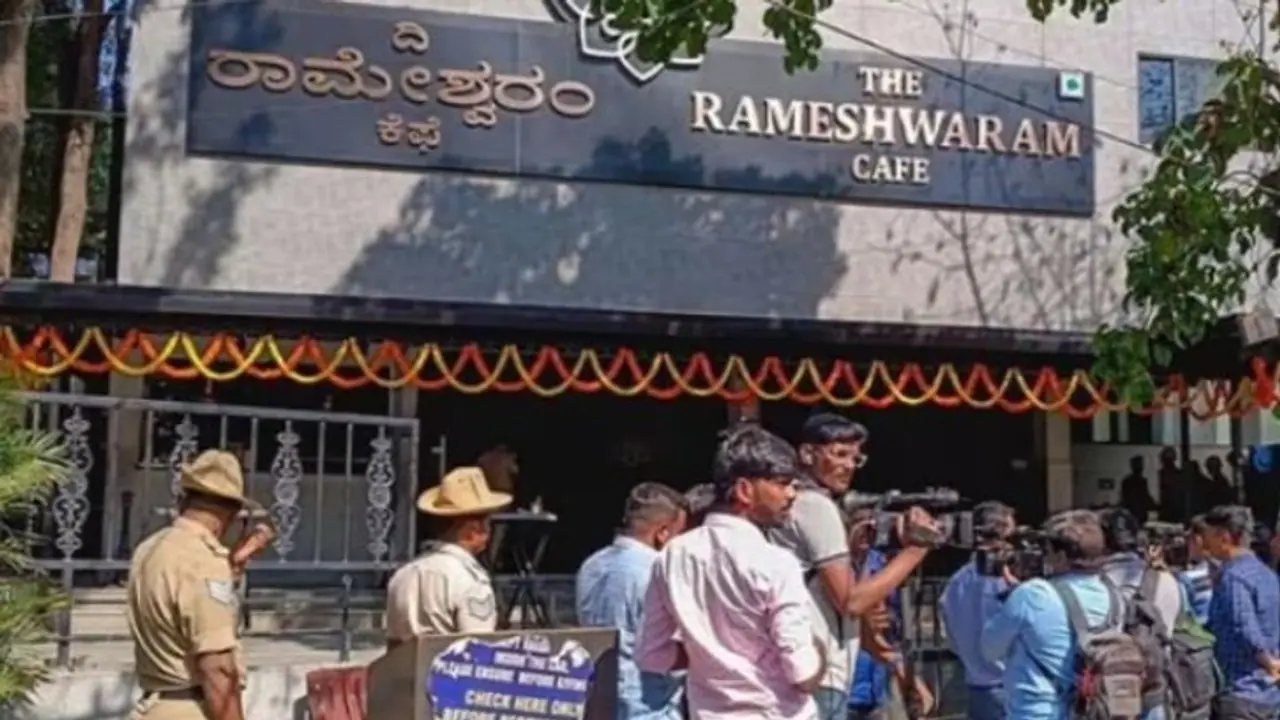The National Investigation Agency (NIA) on Monday filed a chargesheet against four individuals in connection with the Rameshwaram Cafe blast case.
The National Investigation Agency (NIA) on Monday filed a chargesheet against four individuals in connection with the Rameshwaram Cafe blast case. The accused were allegedly involved in a "failed IED attack" targeting the Bengaluru BJP office, coinciding with the consecration ceremony at the Ram temple in Ayodhya.

Two of the main suspects, identified as ISIS radicals, reportedly used fraudulently obtained Indian SIM cards, bank accounts, and identity documents from both India and Bangladesh, sourced from the dark web, to facilitate their operations.
The chargesheet, submitted to a Bengaluru court, names Mussavir Hussain Shazib, Abdul Matheen Ahmed Taaha, Maaz Muneer Ahmed, and Muzammil Shareef as the accused.
All the accused had been arrested earlier and are currently in judicial custody, according to a statement from the NIA.
The statement also revealed that Taaha and Shazib received funding from their handler via cryptocurrencies. Taaha then converted these funds into cash using various peer-to-peer (P2P) platforms based on Telegram.
"The funds were used by the accused to perpetrate various acts of violence in Bengaluru, investigations further revealed. These included a failed IED attack at the state BJP Office, Malleshwaram, Bengaluru, on the day of the Pran Pratishtha ceremony at Ayodhya on January 22, 2024, after which the two key accused planned the Rameshwaram Cafe blast," the statement said
The Improvised Explosive Device (IED) explosion on March 1 at a popular cafe in Bengaluru's Brookfield injured nine people and caused significant property damage.
The National Investigation Agency (NIA), which took over the case on March 3, conducted multiple technical and field investigations in collaboration with state police and other agencies. The investigation revealed that Shazib had planted the bomb, according to the agency.
Shazib and Taaha had been on the run since 2020 after the Al-Hind module—a major terror plot involving targeted killings and other jihadist activities in Karnataka—was uncovered. After an extensive search, the NIA arrested them 42 days after the Rameshwaram Cafe explosion from a hideout in West Bengal.
Both men, originally from Karnataka's Shivamogga district, were ISIS radicals and had previously plotted to migrate to ISIS-controlled territories in Syria.
"They were actively involved in radicalising other gullible Muslim youth to the ISIS ideology, and Maaz Muneer Ahmed and Muzammil Shareef (both chargesheeted accused) were among such youth," the statement said.
Taaha and Shazib had fraudulently obtained Indian SIM cards, bank accounts, and used various Indian and Bangladeshi identity documents sourced from the dark web, according to the NIA.
The investigation also revealed that Taaha had been introduced to Mohammed Shaheed Faisal, a fugitive in the Lashkar-e-Taiba (LeT) Bengaluru conspiracy case, by ex-convict Shoaib Ahmed Mirza. The LeT conspiracy involved plans for targeted killings of prominent leaders, journalists, and police officers. Taaha later introduced Faisal, his handler, to Mehaboob Pasha, an accused in the Al-Hind ISIS module case, and Khaja Mohideen, the Amir of ISIS South India, as well as to Maaz Muneer Ahmed, according to the NIA.
